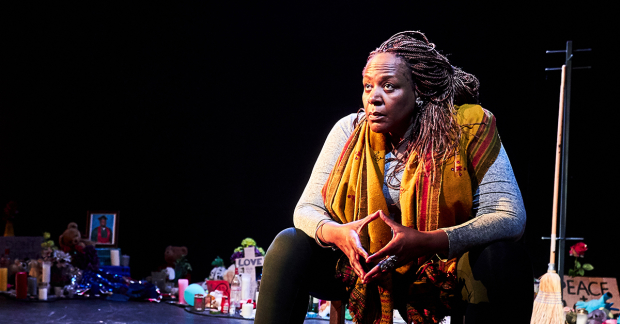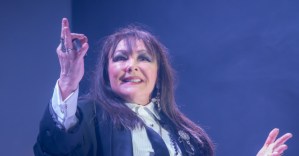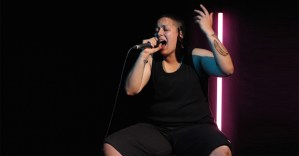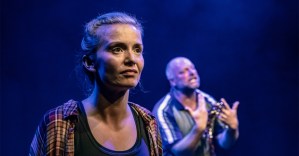Review: Until the Flood (Traverse Theatre, Edinburgh)
Dael Orlandersmith’s show comes to the Edinburgh Fringe

© Alex Brenner
The European premiere of Until the Flood is at one level an example of documentary theatre of the type honed by Anna Deavere Smith, where the writer and performer bases the text on interviews with real-life participants in and witnesses to significant events, and then impersonates the characters in a seamless monologue.
Dael Orlandersmith's play, then, is based on the interviews she conducted in St Louis, in spring 2015, six months after the death of an 18 year-old African American black man Michael Brown, shot down on the streets of Ferguson by a white policeman, Darren Wilson. The exact circumstances are contested. Only two things are clear: Brown was unarmed when he was shot and Wilson was not indicted by a Grand Jury for his part in the incident.
The play opens with a recording of the origins of the tragedy – a conversation between police dispatchers about the sighting of a young black man with a stolen box of cigars under his arm. But other than that, it doesn't go much into what happened; it's more concerned with the bitter, tragic legacy of the event and others like it.
Creating composite figures from her documentary interviews, Orlandersmith slips effortlessly into different roles, black and white, young and old, with the help of a few jackets and scarves and a change of intonation. Takeshi Kata's set places her in front of a recreation of the impromptu memorial to Brown that sprung up in the days after his death; the video images of Nicholas Hussong provide a sense of place and – hauntingly – an image of Brown himself, staring out at a future that was taken from him.
"At church today, I thought, Michael, you were so close to getting out, to leaving, becoming someone….why would you put yourself between a white man and a gun?" asks a retired teacher called Louisa. That is the central question of a work that extends beyond the specific, to a more universal questioning of the terrible and enduring legacy of racism and the way it has blighted the lives of generations.
Although there are angry characters – a streetwise youth, a thug-like racist landlord – the overall mood is elegiac and thoughtful, and all the more chilling for that. There is a terrible sense of waste and loss, of history repeating itself, of progress prevented through ingrained, unbroachable attitudes.
Orlandersmith, directed by Neel Keller, is terrific, understated in her impersonations, calling attention to the words rather than her cleverness as a performer. In the final section, when she stands on stage as her own alter-ego, there is a commanding, amazing grace.

















